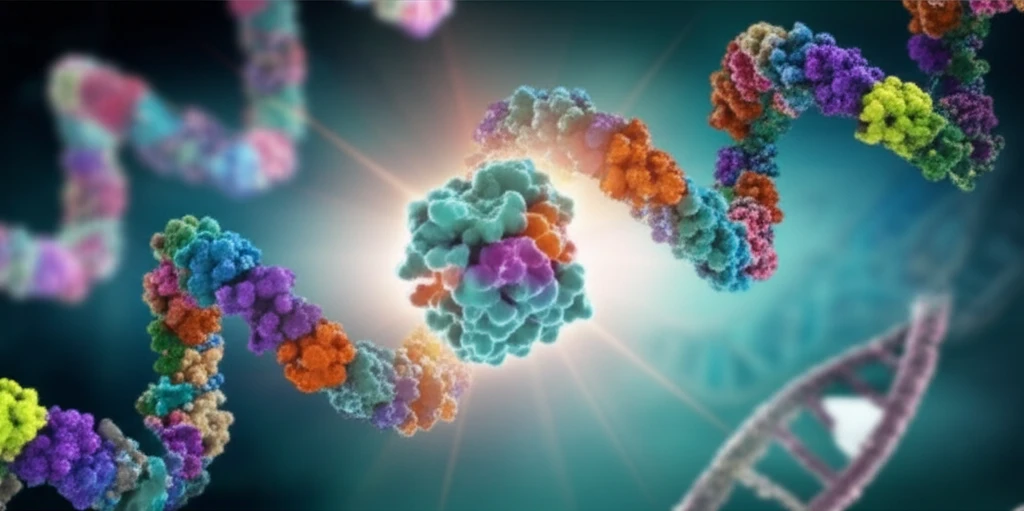
PTEN: The Unsung Hero of DNA Stability and Cancer Prevention
"Unlock the secrets of PTEN: From its role in DNA replication to chromosome segregation, discover how this vital protein safeguards your health and prevents cancer."
Our genetic information, encoded in DNA, is constantly under threat. Faithful DNA replication and accurate chromosome segregation are essential for maintaining genetic transmission, and their disruption is a hallmark of cancer. These processes rely on key tumor suppressors, with PTEN (phosphatase and tensin homolog) playing a vital role.
PTEN is a well-known tumor suppressor frequently mutated or deleted in various human cancers. Its loss is linked to aneuploidy (an abnormal number of chromosomes) and poor cancer prognosis. Research in mice has shown that Pten deletion or mutation leads to genomic instability and tumor development.
PTEN deficiency triggers a cascade of events, including DNA replication stress, stress tolerance, and disruption of mitotic spindle architecture. These disruptions ultimately result in the accumulation of structural and numerical chromosome instability. In essence, PTEN acts as a guardian of the genome by controlling multiple processes involved in chromosome inheritance. Let's explore how PTEN safeguards the integrity of our genetic information.
How Does PTEN Protect Our DNA?

PTEN plays a multifaceted role in maintaining genome integrity, participating in: faithful DNA replication and repair, chromatin condensation, DNA decatenation (separating intertwined DNA strands), and spindle architecture/mitotic fidelity. When PTEN is lost, this can lead to structural and numerical chromosome instability (CIN), both hallmarks of cancer.
- Centromere Protection: PTEN helps protect the centromeres, which are essential for proper chromosome segregation during cell division.
- Chromatin Condensation: PTEN helps maintain the compact structure of chromatin, the complex of DNA and proteins that makes up chromosomes. This compaction is crucial for DNA repair and stability.
- DNA Repair: PTEN facilitates DNA repair, helping to fix damaged DNA and prevent mutations.
The Future of PTEN Research
Our understanding of PTEN's role as a guardian of the genome has grown significantly. Uncovering the multiple PTEN pathways that contribute to faithful DNA replication and chromosome segregation has provided profound insight into how cells maintain their genetic material with fidelity and efficiency. Further research is needed to fully define and elucidate the tumor-suppressive function of PTEN. By understanding how distinct PTEN pathways work together, we can develop more effective strategies to combat cancer.
